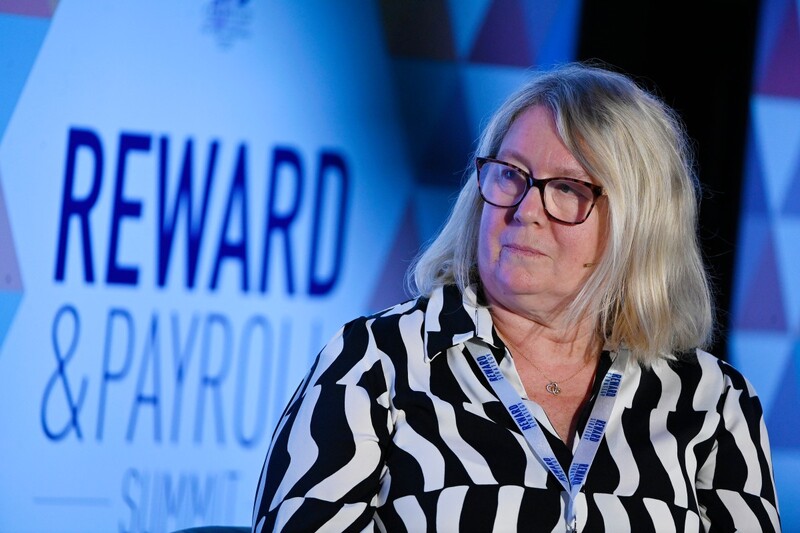From handwritten payslips to AI
A career that began by accident has become a testament to adaptability, persistence, and the evolution of an entire profession

When Karen Beckett was fresh out of school, a career in the police force was beckoning. But after the tragic shooting of police officer Yvonne Fletcher outside the Libyan embassy in 1984, her parents refused to sign the consent forms for her cadet application. A brief stint in retail followed. Then, she spotted an advertisement for a payroll assistant position with local government. "I thought, well, yeah, that’s fine. For the next couple of years, I’ll do that, and then I’ll go and put my application in to join the police force."
That police application never materialised. Forty years later, Beckett laughs: "I didn’t choose payroll. Payroll chose me."
Payroll in the 1980s was a world away from today’s systems, says Beckett. "We started with just three of us in the office, literally handwriting everything," she recalls. "Every Thursday we had to go and get the cash from the bank, and then we actually went out delivering all the pay slips and pay packets to people."
This hands-on approach, she says, meant seeing the faces behind the payslips. And this human connection has remained, but the technological revolution was just beginning. After two years in the profession, direct input pay systems started appearing around 1987, marking the start of payroll’s digital transformation.
The NHS Years and Breaking Barriers
The promise of a better salary drew Beckett to Oxford Health Authority, beginning what would become a career predominantly rooted in the NHS. One of her proudest achievements came when she joined as a manager: "Out of a group of about 20 payroll managers, there were just two of us that were females. The management side always used to be male dominated, and I felt that I achieved by breaking into that."
This may have only been the year 2000, not that long ago, yet it was a different era for payroll. The transformation of the industry since has seen women increasingly taking leadership roles in what was once a male-dominated profession at management level.
As the police ambitions faded, Beckett’s career in payroll flourished "I think probably the variety. People say, ’You must know everything in payroll.’ I go, ’Well, actually, you’re forever learning. You can never say that as a payroll professional you know everything.’"
Payroll is like solving puzzles, she says, particularly when dealing with overpayments or searching legislation, and the human element remains a core facet: "You’re dealing with people, making them aware of how their pay is made up. There’s that whole education piece—you can actually talk to people about things, and there is that appreciation."
The Learning Revolution
As Beckett’s time in payroll progressed, it converted from a job you "fell into" to a profession with formal qualifications. "When I started, there was no formal training in payroll. You fell into payroll and learned as you went along. Whereas now, you can underpin that with formal training."
Beckett became one of the first 15 chartered members of the Chartered Institute of Payroll Professionals (CIPP). When her accountant assistant pressed her about what chartered status meant, Beckett explained: "It just puts me on the same level as accountants." The recognition was personal, but the implications were professional. The entire payroll industry was being recognised.
Despite leaving school with no A-levels due to family financial pressures, Beckett was able to complete GCSE and A-level Law at night school, earn professional qualifications, and eventually achieved a BA Honours while working full-time. Her graduation ceremony holds special significance—her father, at 88, was determined to attend after her mother had passed away, knowing of her success.
The Pandemic Challenge
Nothing prepared Beckett’s team for March 2020. She was abroad when the pandemic hit and had to cut short her leave. "Overnight, we had our office-based staff that didn’t have laptops kicked out of the office. We were literally working 10, 11, 12-hour days to get the payroll done."
The challenges were immense: sourcing laptops, managing furlough schemes alongside regular payroll, handling COVID-related payments. "We would literally sit on Friday nights watching the government briefing to see what they were going to announce that we’d have to get in place ready for Monday."
The experience transformed working practices permanently. Beckett’s team now operates on a hybrid model—something previously unthinkable in payroll, she says.
Technology: From Paper to AI
Having witnessed payroll’s transformation from handwritten calculations to computerised systems, Beckett now stands at the threshold of another development: artificial intelligence (AI). "To me, AI is where I was at the start of my career, when it was moving over from paper into computers. We’re now going really into the next phase."
Her team is exploring how AI might handle routine tasks like updating statutory changes—work that previously took hours of manual research. "We said, ’Update 2023 changes to 2024-25,’ and it just did it like that. AI did it."
But, Beckett emphasises that technology hasn’t eliminated the need for fundamental knowledge: "There’s still the need to know how things work and how to calculate everything. You still need to have that knowledge and technical training behind it."
Leadership Philosophy
As head of service overseeing nearly 40 staff across payroll, pensions, benefits, and expenses, Beckett has developed pragmatic views about payroll’s organisational place. Her perspective on the oft-discussed need for "a seat at the table" is refreshing: "You don’t necessarily need a seat at the table. To me, it’s about getting your voice heard."
Her approach focuses on strategic relationship-building: "It’s about knowing who your allies are, who can take forward what you want to take forward."
Reflecting on what has kept her motivated through four decades of change, Beckett identifies crucial factors. First, variety: "If it had been a straightforward job, I would have got bored. I’ve always said that I need a challenge."
Second, making a difference: "If I can make a difference to people, make a difference to the way that we work, make a difference to people’s lives, as well as fulfilling a challenge for me, then those are the things that really have kept me going."
The payroll community itself has been vital: "There’s that true camaraderie. There’s that whole ’bring it together, come on, we can do this.’"
With 40 years in the profession, Beckett says she has no interest in slowing down yet. She’s joined the NHS Pensions Board and continues seeing opportunities for innovation. "I’m not yet ready to finish, because there’s still so much. There’s still that buzz."
Her story is one of adaptability, continuous learning, and finding purpose in ensuring people are paid correctly and on time. As she puts it: "If people aren’t worried about their pay, then they can look after people." In the NHS context, this philosophy takes on greater meaning, she says: payroll professionals enabling healthcare workers to focus on patient care by ensuring their financial security.
Beckett’s journey from an 18-year-old who never intended to work in payroll to a chartered professional leading a large team typifies the payroll profession’s evolution. From handwritten pay packets delivered door-to-door to AI-assisted statutory updates, she hasn’t only witnessed payroll’s transformation, she’s helping to drive it.
 Amy Assad
Amy Assad